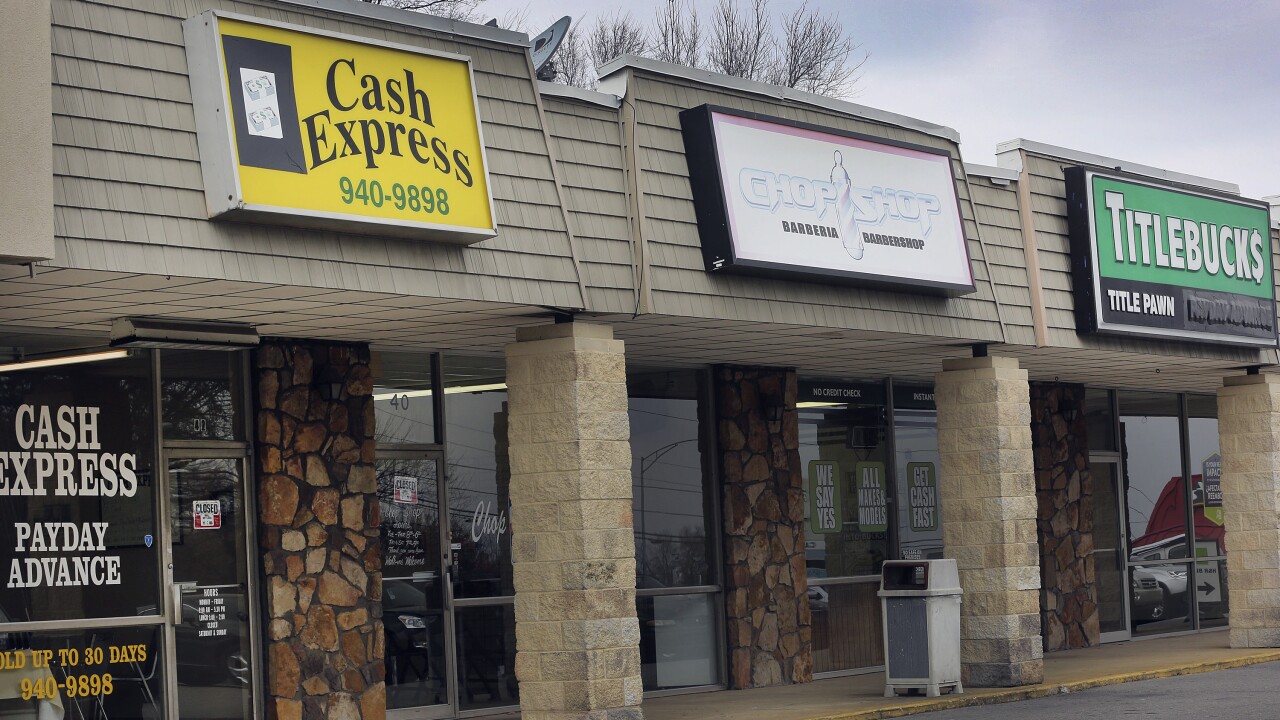-
Banks are experimenting with smartphone-driven shopping technology that provides faster and arguably more secure digital checkouts, mobile apps integrated with shopping catalogs, in-store marketing combined with location tech efforts and digital financial advice.
March 17 -
Taking their cues from popular consumer brands and digital upstarts, financial institutions are modernizing their websites, ATMs, and mobile apps in hopes of creating a better digital banking experience and, ultimately, attracting and retaining more customers.
March 7 -
Building simplified digital experiences, especially in financial services, is critical to institutional survival.
February 28
The best and brightest financial technology startups compete each year in the Core Innovators Challenge, a show-and-tell contest held at the EMERGE Forum presented by American Banker and the Center for Financial Services Innovation. This year's nominations yielded four finalists with ideas that are truly a sign of the times.
Four major trends are shaping the future of finance. Mobile now comes first for mainstream users, not just the digerati. Bitcoin is gaining serious traction and proving to be far more than a libertarian fad. Big data continues to grow with new, exciting methods of gathering "small data." And the advent of alternative small business lending is finally upon us.
The four Core Challenge finalists this year that represent those trends are MoneyWorks, a mobile-first personal finance management software provider; Blossom, a Bitcoin wallet; Dealstruck, an alternative small business lender; and the Entrepreneurial Finance Lab, which uses a psychometric test to determine alternative credit scores.
Personal Finance Goes Mobile
In the old days, personal financial management meant balancing checkbooks and using the envelope system to stick to a budget. These totally manual systems are all but obsolete today. The second generation of personal financial management is best illustrated by Intuit's accounting software Quickbooks, a manual option with the benefits of a spreadsheet and basic computing power. The third generation is embodied by the budgeting program Mint, which is now also an Intuit product. These are semi-automated, user-friendly and web-native, but still removed from most people's regular financial lives. We check them only rarely.
Bitcoin Proves Pessimists Wrong
Bitcoin and cryptocurrencies in general are gaining respectability, while the naysayers are quickly getting left behind. Last year, there were no Bitcoin nominations in the Core Challenge. This year, there were many.
Bitcoin investments are also taking off. Coinbase, a Bitcoin payment processor, has raised more than $30 million in investments from venture capital firms including Andreessen Horowitz and Union Square Ventures. The private equity firm Fortress Investment Group
The mobile Bitcoin wallet
Alternative Lenders Shake Up Small Business Credit
The small business lending market is also heating up. Small businesses have faced severely restricted access to credit since the financial crisis led many traditional financial institutions to tighten lending requirements. New online lenders such as Kabbage and OnDeck have taken advantage of the opening by offering small business owners fast access to credit, making their decisions with the help of social media data as well as other metrics. These companies represent just the tip of the iceberg in the Internet age of loan underwriting and distribution to the 30 million small businesses hungry for cash.
Small Data Still Matters
Big data and machine learningin which computers learn from dataare all the buzz in alternative credit analytics. But the next big thing in big data may be small data. Instead of looking at people's ever-expanding digital footprints, one finalist in the Core Challenge aims to get a glimpse of how they think.
The
If the Core Challenge is any indication, the future of fintech is bright. These four finalists will present at the EMERGE Forum on June 6 in Los Angeles.
Arjan Sch tte is the founder of and a managing partner at Core Innovation Capital, a venture capital firm targeting financial technology companies for the emerging middle class. He is based in Los Angeles.





